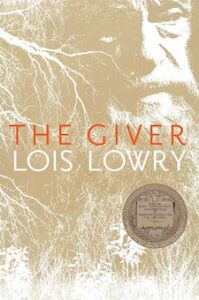3 Reasons I’m Using a Chatbot in My Classes
By Allison Paludi

Skeptical. That was my first reaction when I heard about ChatGPT. No way would I cave in to some creepy technological “advancement” everyone was talking about. Why would I rely on artificial intelligence to create materials when it doesn’t know my students like I do?
Then – bring on March. A full month of no breaks in the teaching cycle, test prep galore, and way more coffee than is healthy to be consumed.
I caved and began my journey into AI’s uses in my classroom.
Reason #1: Lesson Brainstorming. Heavy on the BRAINSTORMING.
My class reads The Giver as their last novel of the year. We cover thematic ideas of censorship, control, and power. I found it ironic that this became the first unit I attempted to use a chatbot as a thought-partner.
As an educator who has also written curriculum, I felt stagnant in this last unit. I’ve taught it three years in a row and wanted to spice it up, try new activities, and infuse fresh paired-texts. I started in the never ending Googling of things, and then gave in. Let’s try this ChatGPT thing.

ChatGPT came back, swiftly, with 6 options. From characterization, to theme identification, to creative writing, and even research options. I used its recommendations to inform my activity pack which I then disseminated to my scholars. Students had three weeks to read, complete two activities, and come ready to engage in our novel discussion.
In my three years of teaching this powerful text, this was the most rewarding. I had a mixture of creative sequels, vocabulary journals, research on thematic topics like censorship and control, and character analysis.
Reason #2: Differentiation – making my lessons applicable to all.
Although I teach 6th graders, most of my students are reading below their average grade level. My school-given texts tend to be at or above grade level, so I have to find ways to make material accessible for all my learners.
For instance, I asked ChatGPT to write a dystopian story for middle schoolers. When I realized that was too broad, I refined my request: Write a 500 word dystopian story for readers at an 800 Lexile Level.
Then, I asked it: Write a 500 word dystopian story taking place in Newark, New Jersey for 800 Lexile Level.
I’ve even unpacked my units with it – gathering summaries, creating culminating projects of choice, and generating vocabulary from texts. Not only has this been informative for schema building, I’ve really been able to harness engagement from all learners. ChatGPT is my new recipe for differentiation.
Reason #3: I need a thought-partner.
There’s no doubt. Being a teacher right now is HARD. Between staff shortages, lack of adequate pay, and just extreme burn-out, it has been a struggle to stay excited about wanting to teach.
In my five years at the charter school where I work, I’ve always felt intellectually challenged – either by co-workers, content, or my classes. This past year I’ve unable to meet with my ELA Department due to our coach now teaching, so a lot of the brainstorming and creation of materials falls solely on my own sometimes weary brain.
As a result, ChatGPT has become my go-to thought partner. And the new AI platforms coming out – Diffit, Forefront, etc. – have become additional tools to add to my AI toolkit.
Final thoughts
By no means does ChatGPT produce the best quality work. In fact, even the dystopian stories I asked it to generate were sub-par. However, it does serve as a launching pad into a whole realm of opportunity to make my material more engaging.
Time saver, for sure. Teacher-replacer, however, not so much. Just as I encourage my students to be critical consumers of what is placed in front of them, I, too, have to use my discretion for what may be helpful or what may actually be harmful. But thought-starter? Definitely.
Allison Paludi is in her seventh year in education. She is currently the 6th Grade ELA teacher at Great Oaks Legacy Charter School in Newark, New Jersey. At her campus she helped establish PLCs with her ELA Department as well as lead the 5th and 6th grade level teams.






























Love this! ❤️ Mom
I agree!